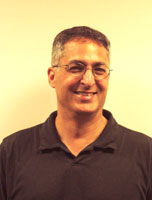
|
Allen Ascher, co-author of Top Notch and
Summit series (Pearson Longman), has been a teacher and teacher-trainer in China and the U.S.
He served as academic director of the International English Language Institute at Hunter College in New York and later,
as vice-president of publishing at Longman, he played a key role in the creation of hundreds of widely used ELT textbooks for adults.
Mr. Ascher has an MA in Applied Linguistics from Ohio University and has presented ELT workshops throughout Asia, Latin America, Europe,
and the Middle East. This interview was conducted on November 19, 2006 in Tokyo.
|

